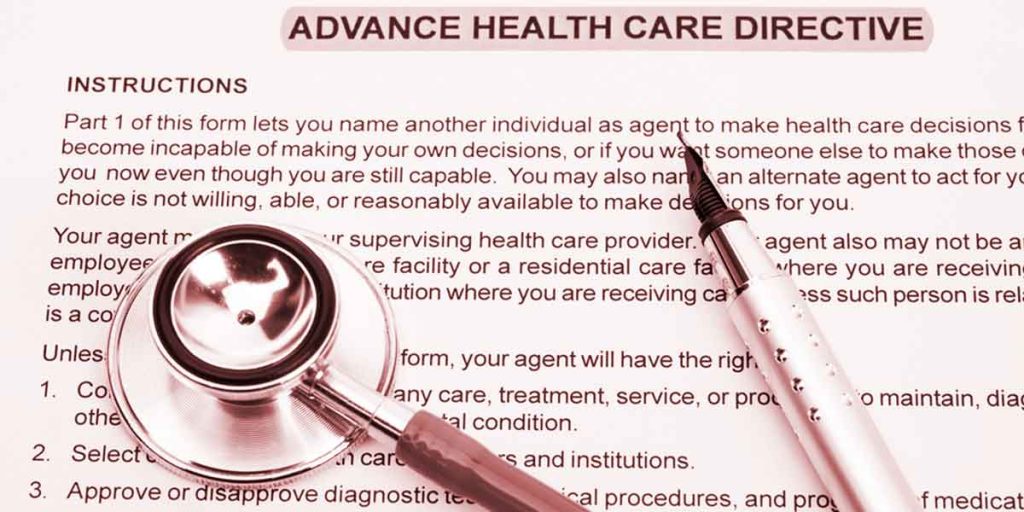What Are Health Care Directives:
Health Care Directives are instructions from the person being treated to get the kind of healthcare he or she needs to keep living when in critical condition. The Health Care Directives is something written in the will all before any tragedies happen and is best to prevent other people making the decisions for you while in an unconscious state. With this plan, you know exactly what you’re getting and receiving the services you paid for. This is to feel more secure with what’s being done to you and get the most comfort out of the worst situation. This makes the process of health care demands easier and without any issues or constraints.
With health care directives being official in your legal will, health care providers have to follow all your instructions unless it begins to be harmful in anyway towards the person who filed it which would lead you to talk to your health representative you assign. If the provider is unwilling to follow these instructions, he or she has to refer you to another health care expert who will follow these instructions. This document lasts until your death or unless the document itself is terminated. With all these possible occurrences that could happen, it’s best to ask of anything specific you may need for your care instead of trying any alternates.
FAQ:
1. What is a medical power of attorney?
A Medicaid attorney NYC allows you to assign someone who will make all your decisions for you pertaining to your health when you’re unable to yourself. This document will give a pass to your representative to make all the important decisions for you like whether you need to get any particular medical treatments or procedures. A medical power of attorney can also be referred to as the health care proxy.
2. When should I make an advance directive?
The best time to make an advance directive is before you need one. In other words, before you become too sick to make your own decisions about what medical care you want to get or refuse.
3. Can I change my mind about my advance directive instructions?
Yes you can! You can also cancel the whole thing it at any time you want. It is important to look over your advance directive instructions often to make sure you get what you ask for. If you change or cancel these instructions, you need to make sure to let your health care proxy and family know. This will help prevent any kind of possible confusion in the future.
4. What documents should I have in place if I’m getting older?
You will need a Health Care Directive, a will, power of attorney, and assign a trust. The power of attorney gets to decide how your finances are spent. You can also assign someone you trust when it comes to these documents. This is called a trust. Trusts is another legal document that shows ways you want to distribute your goods towards your family. There’s the trustor, trustee, the beneficiaries or just a beneficiary, and the grantor, who approves theses trusts. The trustor is the person that makes the trust for the assets he or she is holding. The trustee is the person that holds responsibility of the trustor’s belongings all for taking care of the beneficiaries after death. The beneficiaries are people or even an organization that will benefit from your plan. It is highly recommended to get a trust.
5. What is the difference between a Last Will and a Health Care Directive?
A last will is written to move your assets to a certain destination after your death. Again, a health care directive are instructions from the person being treated to get the kind of healthcare he or she needs to keep living even in critical condition. A last will can’t be used to let the health care proxy know what kind of medical treatment you need.
6. Can an irrevocable trust be amended?
One thing you can do by is to remove assets you’ve written within the trust. You will still have the trust on file but it’ll be one that is empty. There’s also booking an appointment with the court through a trustee since he or she is responsible for making any adjustments as well in the trust even if it’s irrevocable. As long as there’s a good reason for the modification.
7. Can probate be avoided?
Yes it can if you plan it a great deal on your trust or other legal documents. Whoever you assign a beneficiary in your trust, your assets go straight to that person or organization without a probate. There’s other ways but as long as it’s all documented for the court and roles are assigned.
8. What is an Estate Settlement?
An estate settlements is the process of a decedent’s estate being transferred to an assigned trustee or beneficiaries. There’s also planning of who obtains all these assets but expenses that go with it all.
9. How long do you have to work to collect unemployment in NY?
According to the official ny.gov website, you need to be working for at least a month and in file at least $2,700 in wages.Your base period also needs to be higher than your quarter wages.
10. Can I collect unemployment if I go to school?
To receive unemployment you need to document that you’re looking for work and enrolled in school to receive some benefits.









